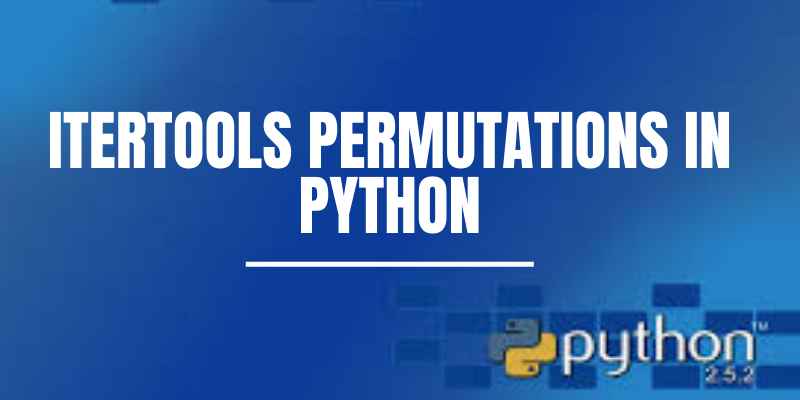Python has excellent documentation for itertools, but in this blog, we will discuss a few important and useful itertools functions or iterators and also about Itertools permutations in python, Itertools in Python, Combinations itertools, and itertools module.
The key feature of itertools is that their functions are used to generate memory-efficient and precise code.
You should be familiar with the Python iterator and generators before diving into the Python itertools. In this blog, we will discuss itertools for both beginners and professionals.
To know more about python join Python Training in Gurgaon at FITA Academy.
Python in Demand
Python’s future growth looks promising. Top companies have remained committed to the current and future trending technologies of Java and Python scope. As a result, python has become a core language, with people using it for research, production, and development. Python is operated by small, large, and start-up businesses to fulfill the requirements of their customers.
Register in Python Training in Kolkata to get into a new learning career with 100% placement.
Itertools in Python
Itertools is one of Python 3’s most amazing standard libraries. This library contains some of the most interesting functions, and it is fair to say that it is the crown jewel of the Python programming language.
This module provides the following types of iterators:
- Infinite Iterators
- Iterators terminating on the shortest input sequence
- Combinatorial Iterators
Itertools.permutation()
The Combinatorial Generators variety contains the Itertools. Permutation() function. Combinatorial iterators are recursive generators that are employed to facilitate combinatorial constructs such as permutations, mixtures, and Cartesian products.
“Permutation” refers to all the different ways a set or string can be ordered or arranged. Similarly, itertools permutations() method returns all possible arrangements for an iterator, and all elements are assumed to be unique based on their position rather than their value or category. All of these permutations are documented in alphabetical ranking. permutations() accepts an iterator and ‘r’ (length of permutation required) as input and assumes ‘r’ as the default length of the iterator if not specified, returning all possible permutations of length ‘r’.
Syntax:
Permutations(iterator, r)
Itertools module in python
Itertools is a Python module that allows you to iterate over data structures that can be stepped over with a for-loop. Iterables are another name for such data structures. This module functions as a fast, memory-efficient tool that can be used alone or in combination to form iterator algebra.
Why should you use it?
This module includes functions that make efficient use of computational resources. Using this module improves the readability and maintainability of the code.
What is the purpose of itertools combinations()?
It replaces r length subsequences of the input iterable’s combinations(). Combinations are emitted in alphabetical order. As a result, if the input iterable is sorted, the combination tuples will be generated in the same order.
Combinations itertools(iterable, r): It replaces sorted r-length tuples with no repeated elements. Combinations(‘ABCD’, 2), for example, ==> [AB, AC, AD, BC, BD, CD].
r = itertools.combinations with replacement: It returns sorted r-length tuples with repeated elements. Combinations with replacement(‘ABCD’, 2), for example, ==> [AA, AB, AC, AD, BB, BC, BD, CC, CD, DD].
Conclusion
So far we have discussed Itertools permutations in python, Itertools in Python, Combinations itertools, and itertools module in python for both beginners and professionals. If you want to learn and gain skills about python join Python Training in Kochi it poses a solid foundation for skills in python.

